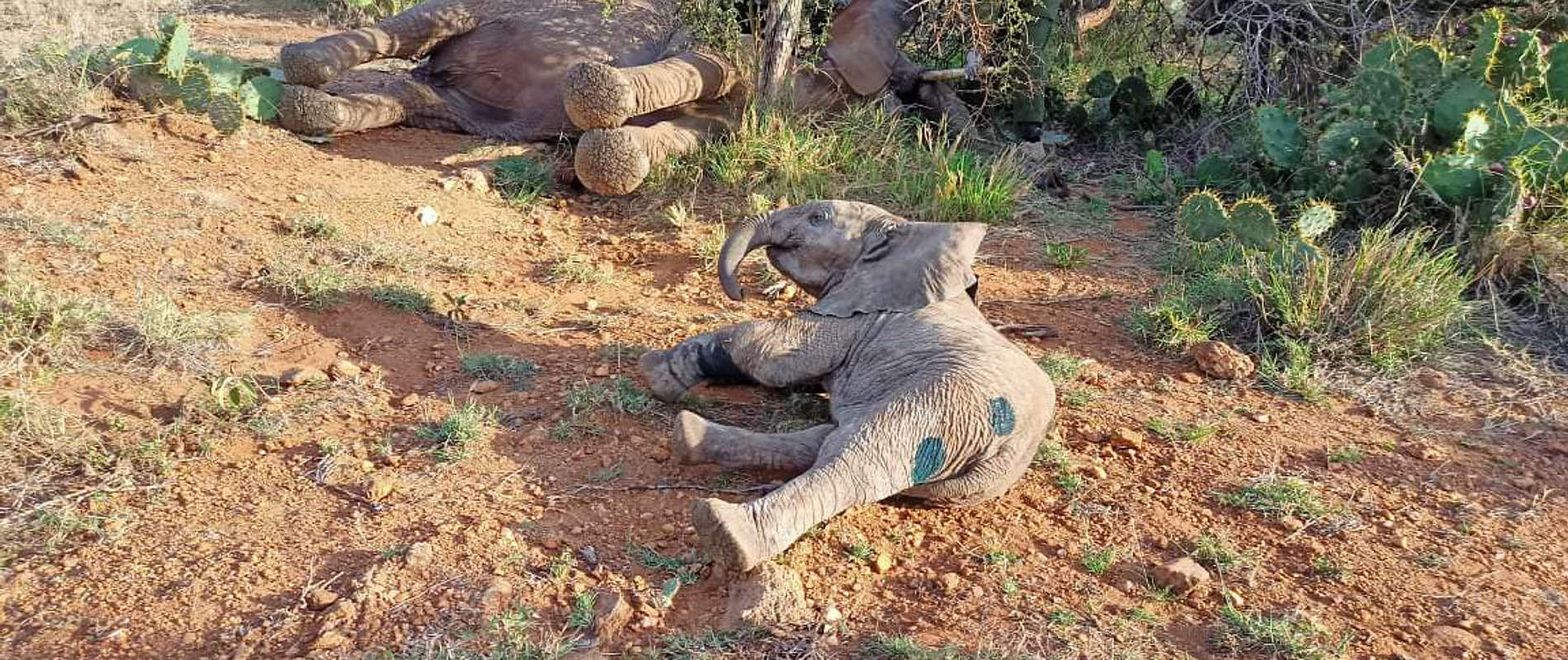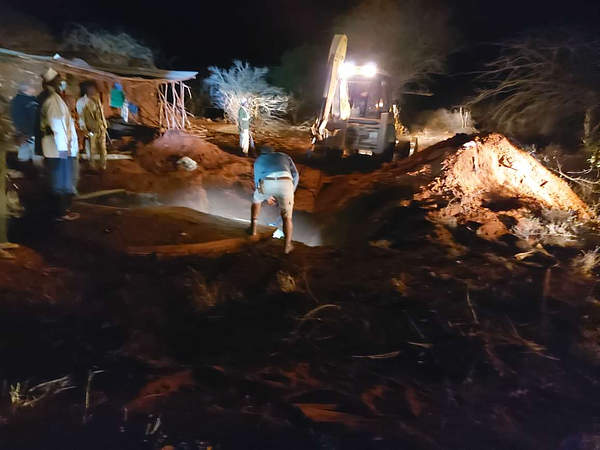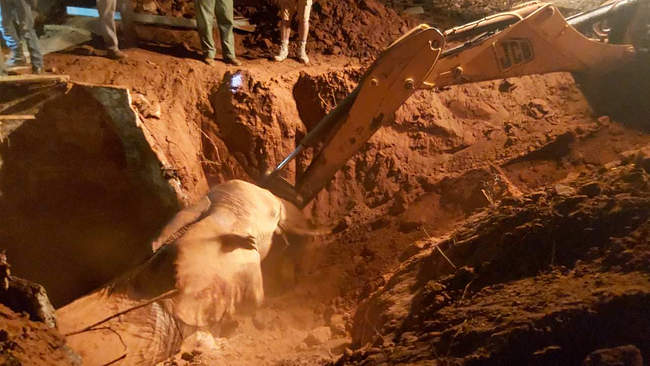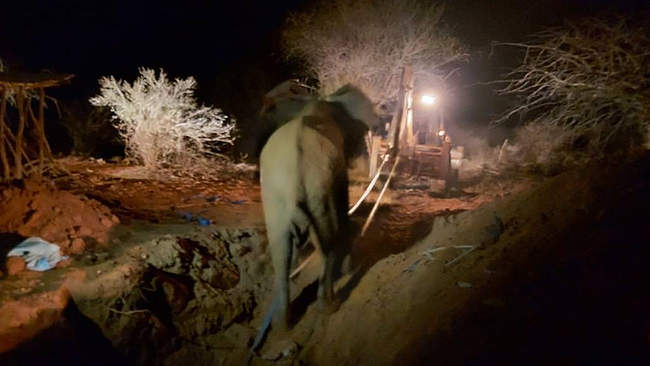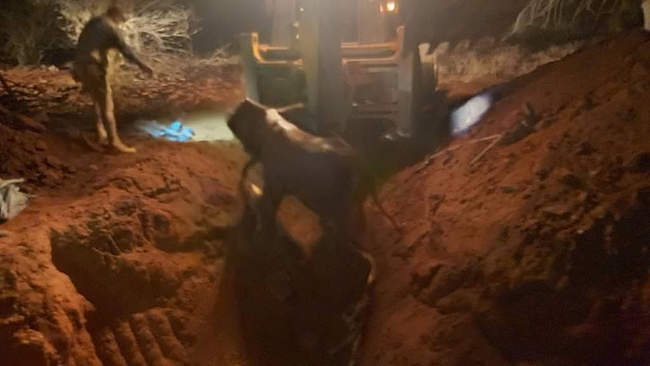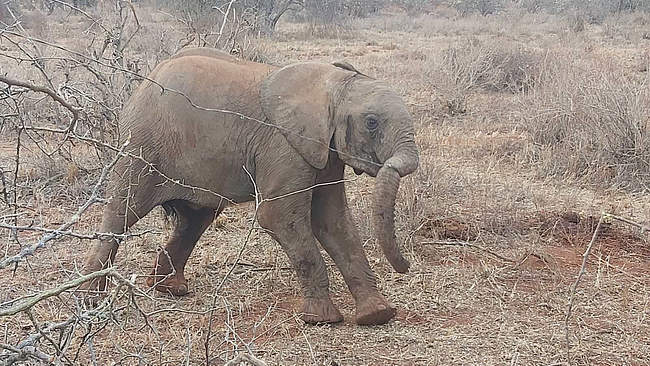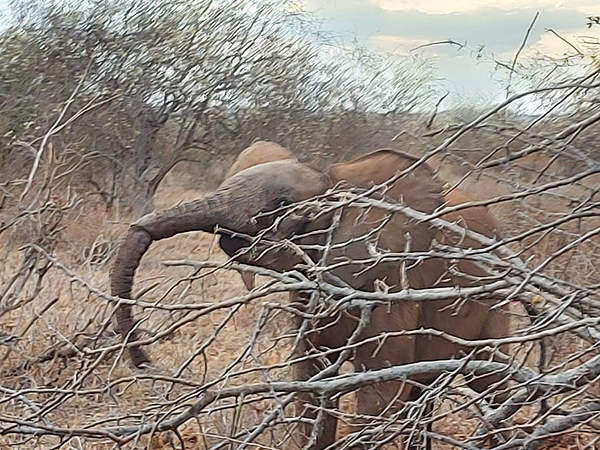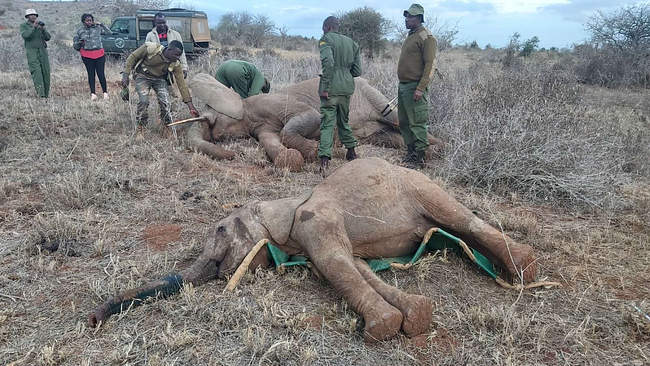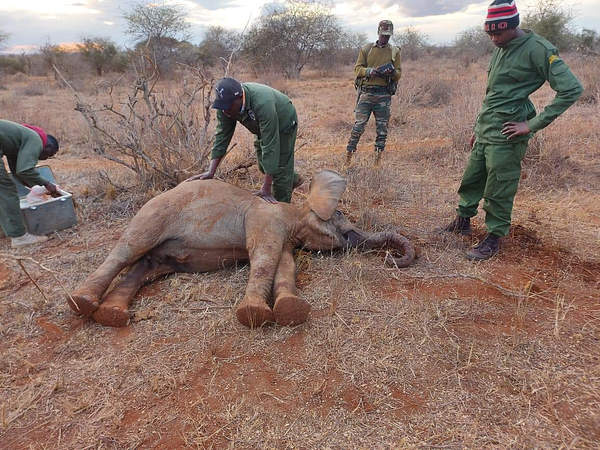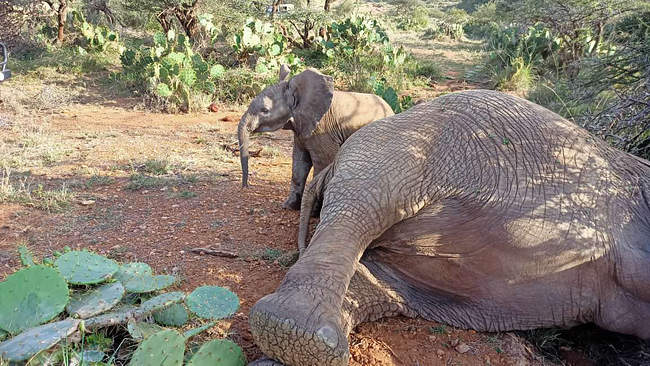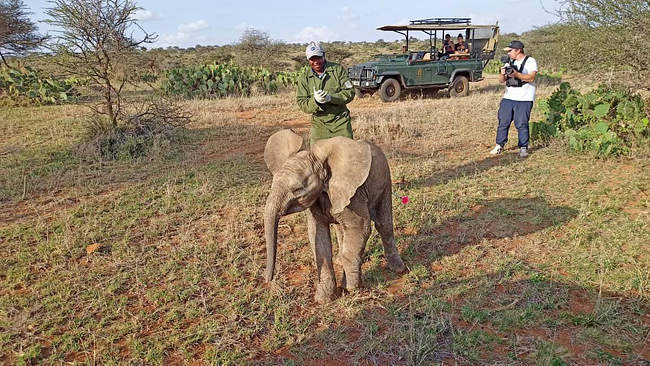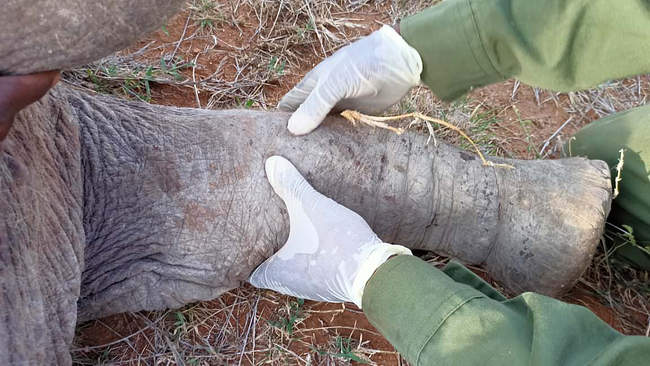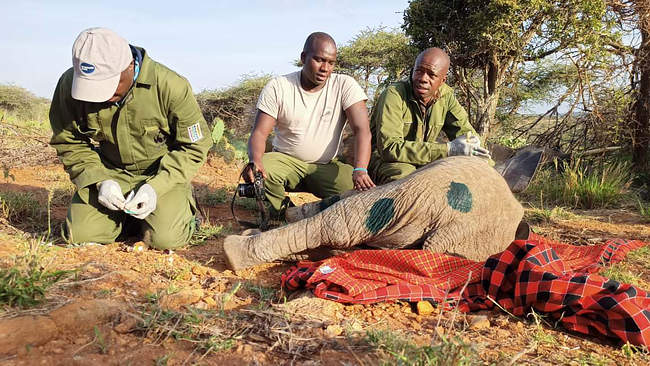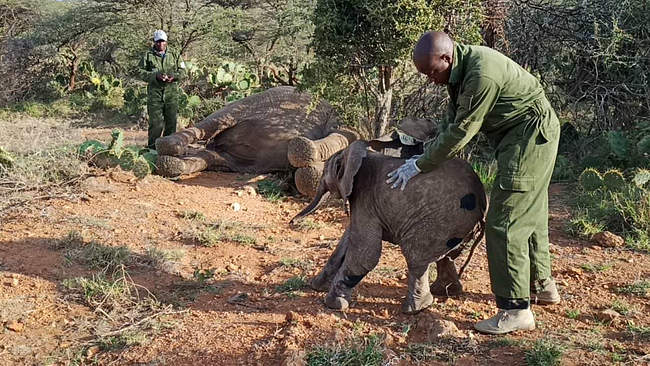We are best known for our work raising orphaned elephants, but above all else, our goal is to keep wild families together. The bond between a mother elephant and her baby is especially precious, and we go to great lengths to protect that even in the most challenging of circumstances that might threaten to tear them apart. Three incidents this month, that unfolded in the span of a week, illustrate all that is at stake in these operations.
On the eve of World Elephant Day, our teams dove into a challenging nighttime operation to save a mother elephant and her baby who had fallen into a cesspit. After a herculean effort by all involved, they managed to haul the mum out of the cavernous hole. Incredibly — and despite the fear and stress she must have been experiencing — she cooperated with the rescue team’s final push to extricate her baby. You can read a full account of this operation here.

Just three days later, our SWT/KWS Tsavo Vet Unit received reports of a calf who had become caught in a bushmeat poacher’s snare. As the little elephant struggled to free itself, the wire pulled tighter around its trunk. Her mother stood by, desperately stressed but unable to help. Without urgent intervention, there were two possible outcomes: The calf’s trunk would be severed entirely, or it would fall victim to hyenas or other predators.
Because the mother refused to leave her baby’s side, Dr Poghon darted both with anaesthetic in order to safely commence treatment. Miraculously, our help arrived in time and the snare had not yet sliced into the calf’s trunk, making its removal very straightforward. With that completed, they carried the pint-sized patient over to her mother’s side, so they could wake up in each other’s company. With this harrowing ordeal behind them, they walked off into the horizon together.

The calf rescues continued last week, when our SWT/KWS Mount Kenya Mobile Vet Unit was called to help a calf in Loisaba Wildlife Conservancy. A tour guide had observed him heavily limping and struggling to keep up with his herd. The team arrived to find that the other elephants had continued onwards, leaving the calf in his mother’s company.
Knowing that the mum would refuse to leave her baby’s side, Dr Ndambiri darted both. While the calf’s leg was battered, likely as the result of a fall, nothing appeared broken. The team treated his bruises and administered medication to aid healing and manage his pain. Upon reviving both the baby and his mum, the patient immediately began suckling, and the pair soon rejoined their herd.

These calves have life spans that mirror our own ahead of them. An elephant can live upwards of 70 years, but a cruel twist of fate —be it taking a fall, becoming entangled in a snare, or stumbling across a manmade hazard — can erase all of that in a moment. Because of your support, our SWT/KWS Mobile Vet Units are in a position to respond immediately to mitigate these twists of fate, and ensure that wild families have the future they deserve.
